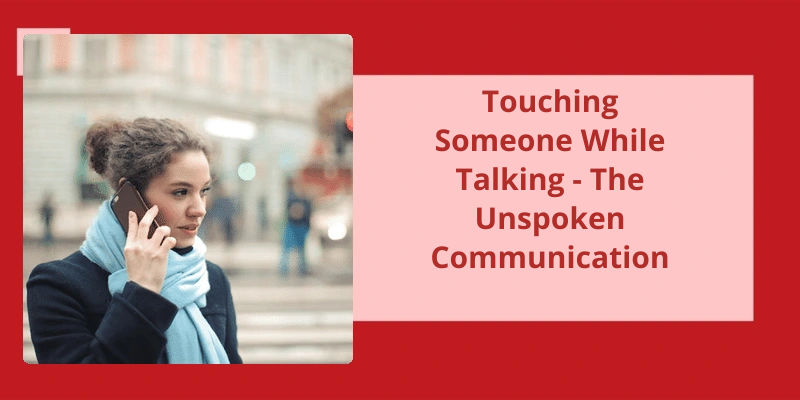What Does I’m Free Mean?
When someone says “I’m free!”, it typically means that they’ve no obligations or plans at a particular time, and are able to use that time as they choose. This might mean enjoying some relaxation or leisure activity, pursuing a hobby or interest, or simply taking some time to reflect or recharge. In this sense, being free is often associated with a sense of liberation and autonomy, as the individual isn’t bound by external factors or obligations.
However, the concept of freedom can be complex and multifaceted, and can mean something different for each person. For some, freedom might mean the ability to make choices and determine ones own future, while for others it might mean overcoming personal challenges or obstacles. In a broader sense, freedom can also refer to political or social freedoms, such as freedom of expression or freedom from oppression.
It’s the ability to act on ones own desires and interests, without being restricted or dictated to by external forces. This sense of freedom can be incredibly empowering, and can give individuals the opportunity to explore their own potential and creativity.
Of course, being free also comes with it’s own set of responsibilities and challenges. When there are no external obligations or constraints, it can be easy to become overwhelmed or succumb to procrastination. Additionally, the pursuit of freedom often requires courage and self-reflection, as individuals must confront their own fears and limitations in order to truly embrace their autonomy.
It’s a fundamental desire and aspiration, and serves as a powerful motivating force for individuals and societies alike. Whether we’re seeking personal freedom or working towards political or social change, the pursuit of freedom is a constant and enduring part of the human experience.
The Psychological Benefits of Feeling Free
- Reduces stress and anxiety levels
- Improves self-esteem and confidence
- Increases creativity and productivity
- Enhances emotional well-being
- Boosts overall happiness and life satisfaction
- Encourages greater independence and personal growth
- Fosters healthier relationships and social connections
- Promotes a sense of purpose and meaning in life
- Facilitates psychological healing and recovery from trauma
- Strengthens resilience in the face of adversity
Now that we know how to say “I’m free today” in different ways, let’s explore some other useful phrases for communicating availability in various settings.
How Do You Say I Am Free Today?
When people want to communicate that they’ve unoccupied time, there are a few different ways they might express that idea depending on the context of the conversation. One common phrase that someone might use to convey that they’re free today is simply “I’m free today.”. This phrase falls into the category of direct language, as it clearly and unambiguously states the speakers status in regards to their schedule.
However, if the person wants to be more specific, they might say “I’m free for the rest of today.”. This variation on the phrase emphasizes that their availability applies to the remaining portion of the current day and not any time beyond that. This wording could be particularly useful if someone had earlier in the day been unavailable but is now able to schedule something later on.
Another option for expressing the idea of having free time is “I’ll be free for the rest of the day.”. This phrasing is more future-focused, indicating that the speaker plans to remain available and unoccupied for all the hours remaining in the day. This choice of wording might be appropriate if someone was anticipating a change in their schedule in the near future, such as if they were wrapping up work assignments and knew they’d have the evening free.
Overall, the key message that each of these phrases conveys is the same: that the speaker is currently unoccupied and available to do something. By choosing between the three different versions of this message based on the context of the conversation, the speaker can tailor their language to the specific needs of the situation. From casual social plans to more formal business arrangements, the ability to articulate ones availability clearly can be an important part of effective communication.
How Do You Say I Am Free Now?
This construction places emphasis on now and conveys a sense of relief or liberation. It could indicate that the person was previously occupied or constrained in some way but has now been released from their obligations. The repetition of now may also indicate a sense of urgency or excitement, as if the person has been eagerly anticipating this moment and is eager to express their current state of freedom.
However, it’s worth noting that the tone and context in which this sentence is spoken or written can greatly impact it’s meaning. Depending on the speakers tone of voice or the situation they’re in, I’m free now could be interpreted as a simple statement of fact, an anxious plea for assistance, or even a sarcastic expression of dissatisfaction or frustration.
Furthermore, the specific wording and phrasing of this sentence may vary depending on the language and cultural context in which it’s being used. For example, in some languages, such as Spanish or French, the adjective or adverb indicating the persons emotional state may need to be included before the verb to be.
Ultimately, the meaning and significance of I’m free now will vary depending on the individual speakers intentions and the unique circumstances in which the sentence is used. Whether expressed with relief, excitement, or frustration, the simple phrase I’m free now can carry a powerful emotional weight and convey a multitude of meanings.
The Language of Liberation: How Different Languages Express the Concept of Freedom and Liberation and the Nuances That Exist in Their Phrasing and Usage.
- English – freedom, liberty, emancipation, release, liberation, independence
- French – liberté, affranchissement, émancipation, libération, indépendance
- Spanish – libertad, emancipación, liberación, independencia
- Portuguese – liberdade, emancipação, libertação, independência
- German – Freiheit, Befreiung, Unabhängigkeit
- Italian – libertà, emancipazione, liberazione, indipendenza
- Chinese – 自由 (zìyóu), 解放 (jiěfàng)
- Japanese – 自由 (jiyuu), 解放 (kaihou), 独立 (dokuritsu)
- Korean – 자유 (jayu), 해방 (haebang), 독립 (dongnip)
Conclusion
In conclusion, expressing your availability for a specific day is a simple and crucial conversation to have in any setting, whether in a professional or personal context. While it may seem like a common phrase to say "I’m free that day", the language used to communicate this message can greatly vary depending on the culture, language, and tone of the conversation. Understanding these nuances can go a long way in building strong and effective relationships with others, and being able to express oneself clearly and confidently. In essence, the ability to communicate availability is a valuable tool in any situation, one that can open up new opportunities and strengthen connections with those around us.






